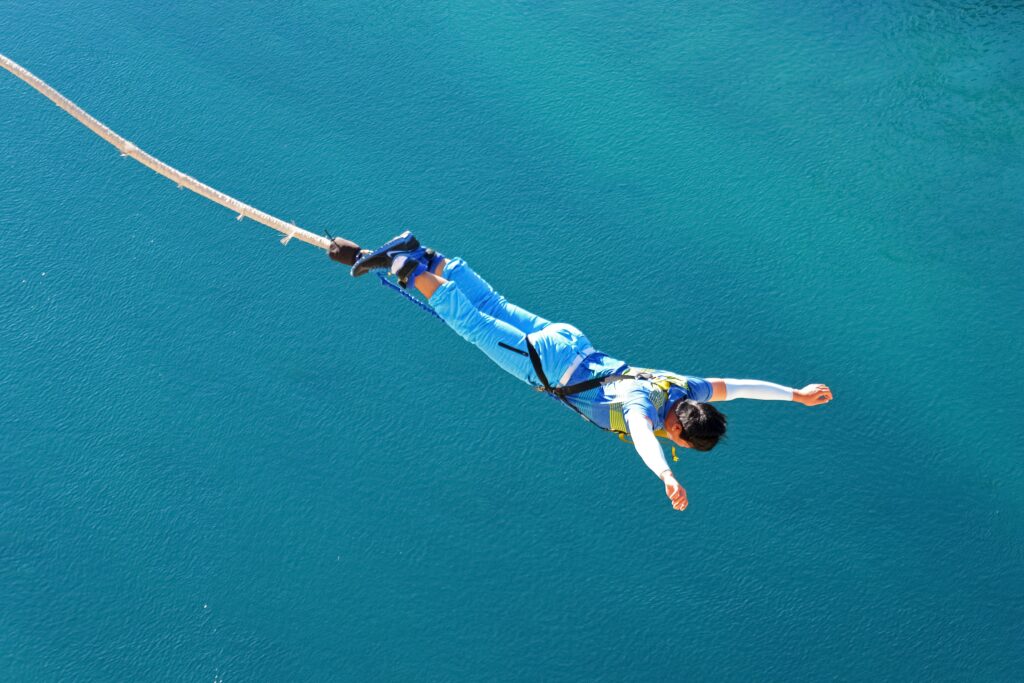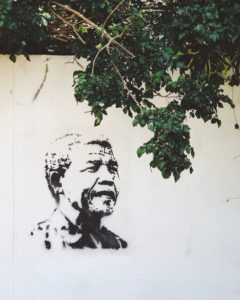
Every so often here I just tell a story, something I’ve lived through that I think is entertaining. I’ve written on the almost-plane-crash, and on the time when my Dad threw bullets in a wood stove. There are other stories to tell, and today I’d like to talk about jumping off a bridge.
In God’s kind providence, I’ve had the opportunity to take ten different teams of university students to Africa. The experiences have been instructive, exciting, and joyous; I have fond memories of each team and each team member.
We went to several different countries: initially Kenya and South Africa, then Zambia, and eventually several teams went to Ghana and Tanzania. Ministering in countries in three different regions—East Africa, West Africa, and Southern Africa—taught us a lot about the cultural diversity of the continent, dispelling several myths common among Americans—but that’s for another post.
On one of the trips (the second, in 2010), we went to Zambia, working in several churches, an orphanage, and a Christian school in the Copperbelt, the northern part of the country. It was a delightful experience with a really talented and focused team.
I’m sensitive about tourism on these trips; we don’t go to be tourists, and I try to weed out those students early in the planning process. But on most trips there’s been time and opportunity to do a little touristy thing. We visited Amboseli in Kenya, Serengeti in Tanzania, Mole in Ghana, and even an amusement park in Johannesburg (in winter!), where we had the place pretty much to ourselves and rode the roller coasters until we could hardly see.
Zambia has one of the Seven Wonders of the natural world, Victoria Falls, and the missionaries we were working with thought it would be worthwhile to take 3 days to drive to Livingstone and back, with a day at the Falls. I was inclined to trust their judgment. : – )
The Falls are spectacular. They’re as wide as three Niagara / Horseshoe Falls, and you can hike right up to the very edge of the precipice on the Zambia side; I bent down and put my finger in the first inch of the cataract. You can hike around to the front of the falls, and I very much recommend the raincoat rentals.
There are associated activities, among which we gave the team members options. Several opted for the whitewater rafting, while others chose the bridge package. Just downriver from the Falls there’s a bridge between Zambia and Zimbabwe, from which you can bungee jump or ride a giant swing, and nearby there’s a zipline. At the time, you could do all three for $100.
When I showed up with ten customers, the guy comped me.
All three, for free. Cool.
The bridge is about 150 meters above the Zambezi River, with class 6 rapids in the gorge, and crocodiles just downstream.
Any number of ways to die.
I had posted on the team blog, which is typically read by parents and other interested parties, that we were going to have this opportunity, so that parents could interact with their progeny if they had concerns. When we got there, I watched the staff very closely, and they were professional, methodical, careful, with frequent checks and doublechecks.
OK then.
You could jump solo or in tandem. I opted to go alone.
You stand on the edge of the platform, raise your arms to the side, look at the horizon, and the crew member says, “1, 2, 3, bungee!” and gives you a slight nudge in the back.
Down you go.
It’s sensory overload—the peripheral landmarks speed by, the wind is rushing in your face, the water is roaring louder as you approach, and you’re upside down for the additional joy of utter disorientation.
It’s a 110-meter freefall before you max out the cord (essentially a 6-inch-thick rubber band), and then oscillate to equilibrium. There’s no discomfort to the maximum extension—it’s a rubber band, not a rope—but I found the extended time upside down, with blood rushing to my head, mildly uncomfortable.
When you’ve stopped boinging, a crew member comes down on a cable and ties into you, and they haul you back up.
At the time, this was the second highest bungee jump in the world. (The highest was in South Africa.) A few months after we jumped, an Australian woman had the cord break and dump her into the Zambezi—and she survived.
Knowing that, I don’t know if I’d do it again.
But it sure was fun.
Photo by Jeremy Bezanger on Unsplash

